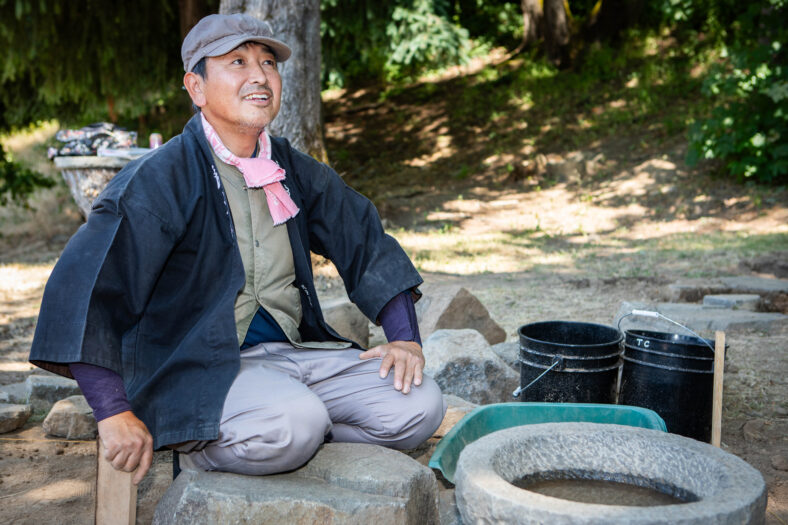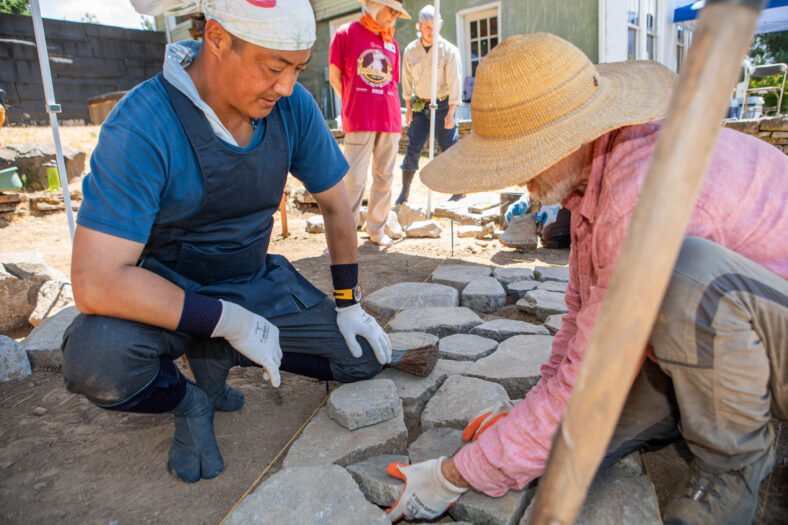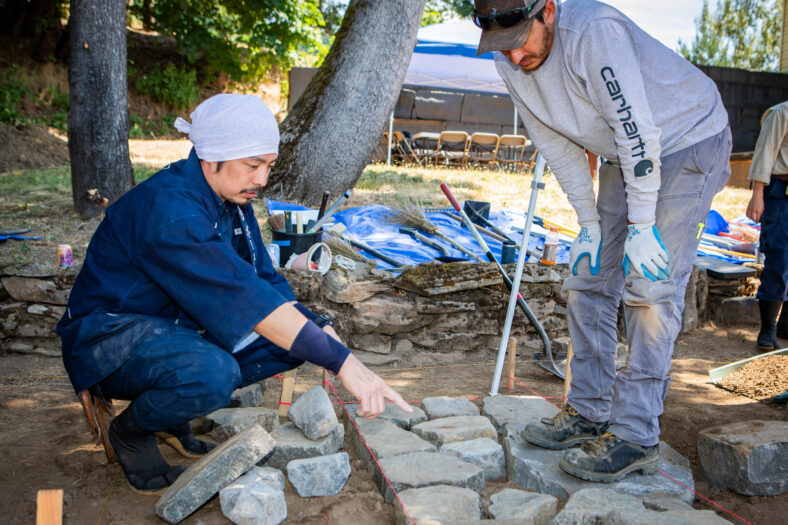
The International Japanese Garden Training Center, one of Japan Institute’s three programmatic centers, teaches traditional skills and techniques for creating and fostering Japanese gardens. The Training Center’s flagship program is Waza to Kokoro: Hands and Heart, a seminar that educates professionals in Japanese principles of landscape design, construction, and gardening. This expertly tailored offering in a highly specialized field helps ensure that future generations of gardeners can help keep the art of Japanese gardening alive and thriving in the years to come.
“Waza to Kokoro literally means ‘hands to heart,’” explains the Training Center’s Director and Portland Japanese Garden’s Chief Curator, Sadafumi Uchiyama. “However, what the title really does is signal that the seminar explores the relationship between doing and becoming. ‘Waza’ refers to technique and skill, a fluidity of action achieved through observation and repetition. ‘Kokoro’ extends beyond just ‘heart’; it encompasses one’s inner nature. These concepts, combined with understanding Chado (the way of tea), are the core of learning Japanese garden arts.”
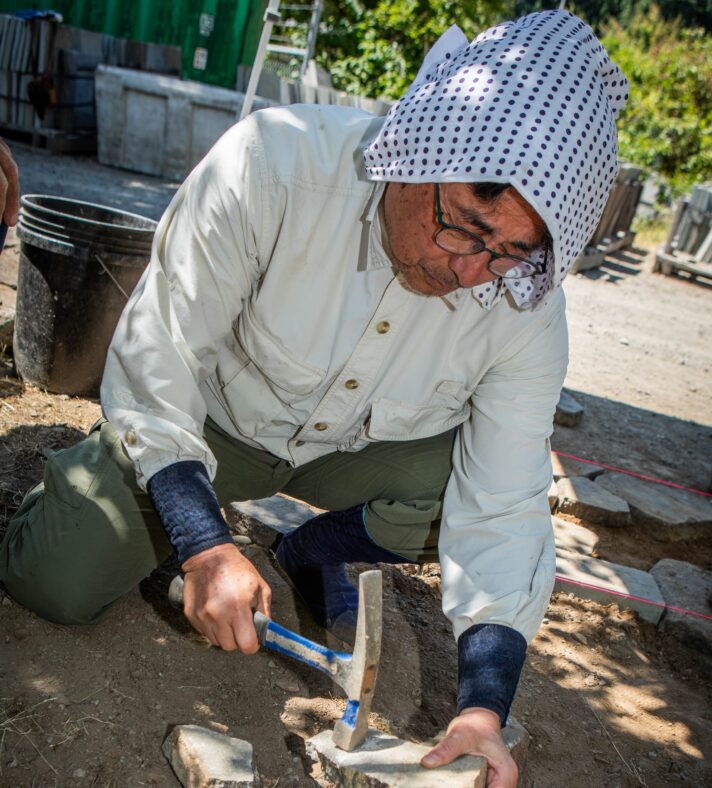
This year’s one-week seminar was set at the intermediate level and welcomed 12 learners from locations dotted across the United States, including Denver, Tallahassee, Grand Rapids, and Lexington. These individuals, who work as gardeners, designers, and landscape architects were instructed by internationally respected and seasoned experts, including Portland Japanese Garden’s Garden Curator, Hugo Torii, Chado sensei Jan Waldmann, Councilor and Vice-Chairman of the International Activities Committee of the Garden Society of Japan and niwashi (garden master) Koukai Kirishima, Keihanna Commemorative Park Head Gardener and niwashi Tomohiko Muto, founding board member of the Aesthetic Pruners Association, Maryann Lewis, and Uchiyama, a niwashi in his own right.
Day One: The Way of Tea
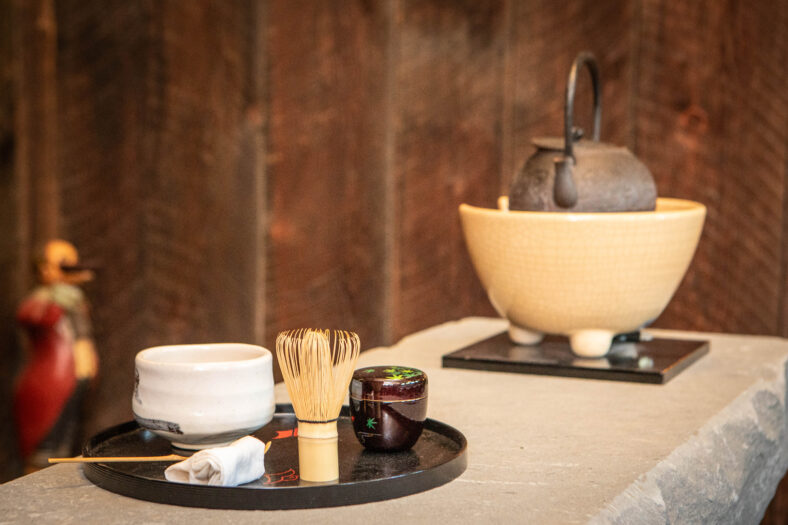
While the seminars of the International Japanese Garden Training Center will eventually be held at Japan Institute’s campus near Forest Park, this year saw the return of its programming across a variety of spaces in the greater Portland metro area. On day one, Waza naturally started at Portland Japanese Garden, where participants were welcomed by Uchiyama with a walking tour of the landscape.
Perhaps most importantly, the tour concluded with a visit to the Tea Garden, where they learned about Japanese tea ceremony from Jan Waldmann. Waldmann began the study of chado in 1971, while living in Japan. Over the years, she studied in both Japan and America, receiving her teaching degree from Urasenke Foundation in Kyoto, Japan, in 1989. “The traditional Japanese tea ceremony is a particular manner of preparing and drinking a bowl of tea,” Waldmann shares. “More than just making and serving tea, this tradition is based in formality. In many ways, it is a microcosm of the Japanese sense of omotenashi, which translates as wholehearted hospitality.”
“The four principles of tea are wa (harmony), kei (respect), sei (purity), and jaku (tranquility),” explains Uchiyama. “In exploring these qualities, the gardener can draw connections to their own work, such as attention to aesthetics, careful preparation, sensitivity to the visitor’s experience, skill achieved through repetition, and being mindful of the larger reasons for creating and fostering a garden. Through tea, one can understand much of Japanese culture and that is why we begin every day of Waza to Kokoro with it.”
Note: This article will be updated to cover the entirety of the week-long seminar. To be informed when it’s updated, please subscribe to our weekly e-newsletter, by clicking here.
